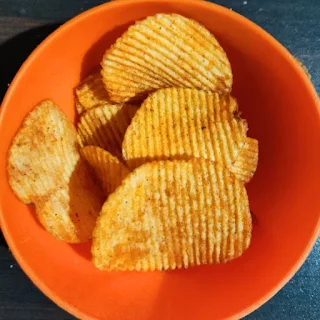Best selling potato chip brands in Africa
Five popular potato chip brands in Africa are Simba Chips, Chippies, Niknaks, Lays, and Safri Chips. PepsiCo owns three Simba, Chippies and Lays.
What are potato chips called in Africa? It's important to note that potato chips go by different names in various African countries, depending on the local language or dialect.
Potato chips are simply called chips or crisps, while others have different names.
For example, in South Africa, potato chips are called slap chips. In Nigeria, they are known as potato crisps or potato chips, while in Kenya, they are called "crisps." In Egypt, they are known as lays after the popular brand of potato chips, while in Morocco, they are called chips or pommes chips, French for potato chips.
Best-selling potato chip brands in Africa.
Simba Chips is a South African brand that offers a variety of flavors. Simba Chips is a popular snack brand in South Africa, known for its range of potato chips or crisps, as they are often called in South Africa.
Simba Chips has been around since the 1950s and is one of the most recognized snack brands in the country.
Simba Chips offers a variety of flavors, including cheese and onion, salt and vinegar, tomato sauce, and many others.
The brand is known for its high quality and delicious taste and is a popular choice for snacking in South Africa.
In addition to their potato chips, Simba Chips also produces other snacks such as peanuts, popcorn, and pretzels. The brand is owned by PepsiCo, one of the world's largest food and beverage companies.
Chippies are a Zimbabwean brand that offers flavors such as Tomato Sauce, BBQ, and Cheese and Onion. Chippies is a popular brand of potato chips in Zimbabwe. It is owned by Simba Savannah Private Limited, a subsidiary of PepsiCo. Chippies potato chips come in a variety of flavors, including salted, cheese, onion, tomato sauce, and BBQ.
They are made from locally sourced potatoes known for their crispy texture and rich flavor.
In addition to potato chips, Chippies also produces other snacks such as maize snacks and peanut butter. The brand is widely available in Zimbabwe and is a favorite snack among many Zimbabweans. Niknaks is a South African brand that offers cheese-flavored corn snacks similar in texture to potato chips.
The availability of Lay's potato chips in specific regions or countries within Africa may depend on factors such as local demand, distribution channels, and import/export regulations. Lay's is a brand of potato chips and other snack foods owned by Frito-Lay, a subsidiary of PepsiCo, Inc. PepsiCo is an American multinational food, snack, and beverage corporation headquartered in Harrison, New York.
Safari Crisps is a brand of potato chips produced by the Kenyan company Trufoods Limited, headquartered in Nairobi, Kenya. Trufoods Limited also exports its products to other countries in East Africa, such as Uganda and Tanzania. Some popular potato chip flavors are onion, cheese, peri-peri, chicken, and tomato.
- That African Fabric You're Wearing Isn’t African

- About neck elongation rings

-
Lighthouses of Egypt and Morocco

- Mental Illness in Africa Taboos

-
Kente cloth inspired by a spiders web




